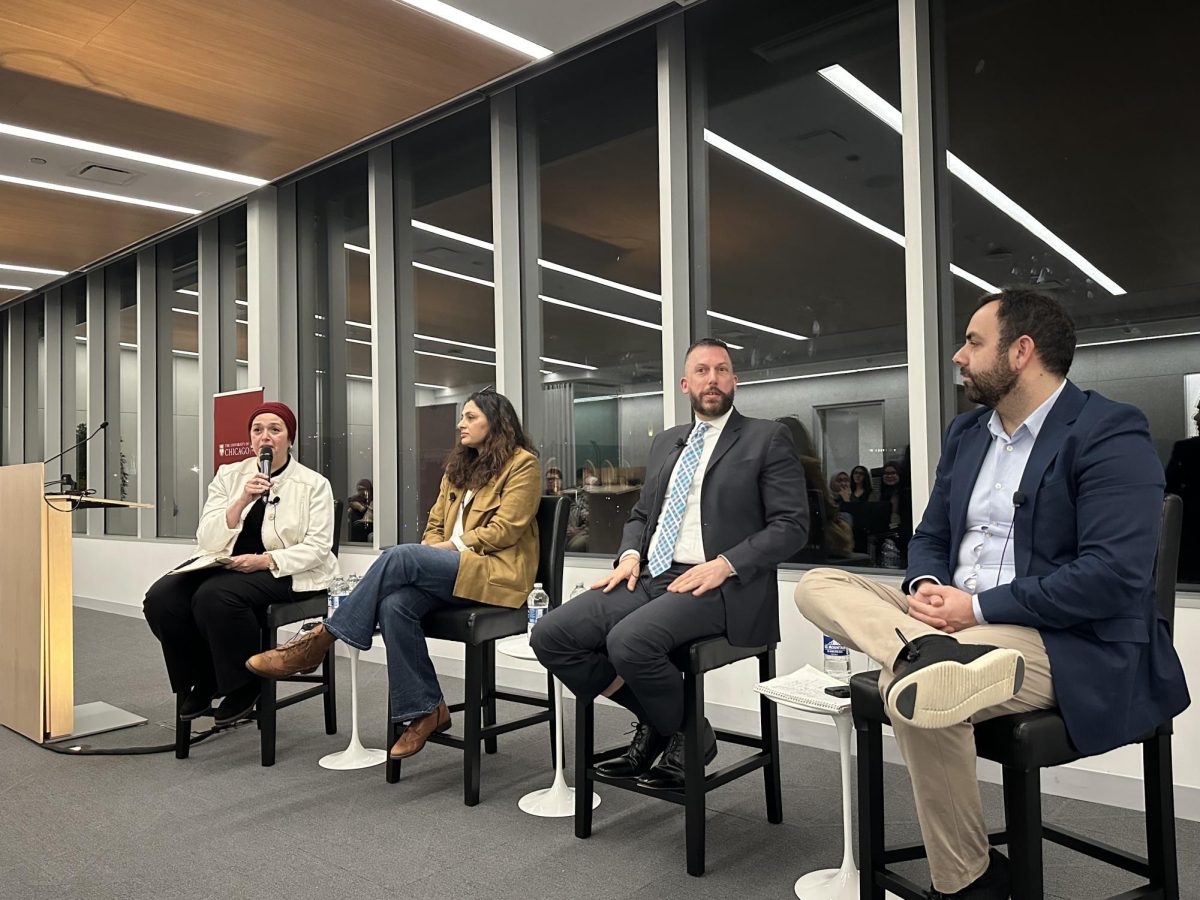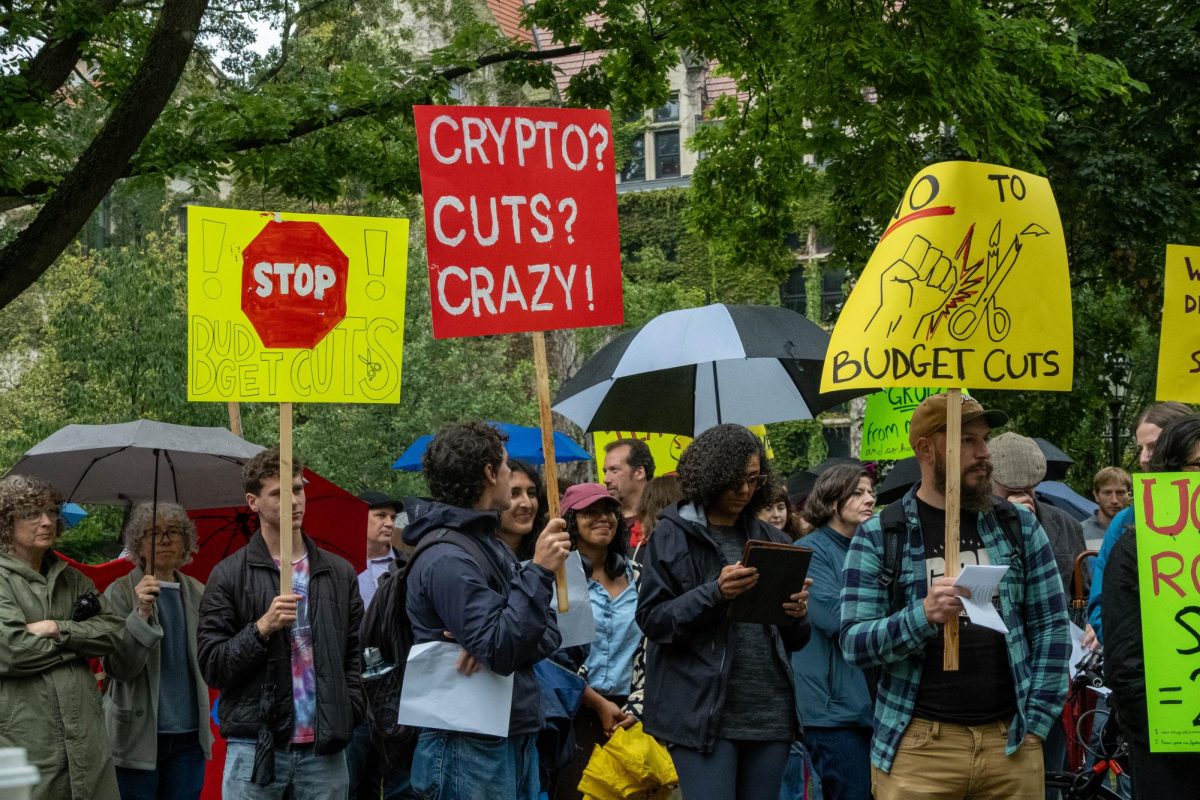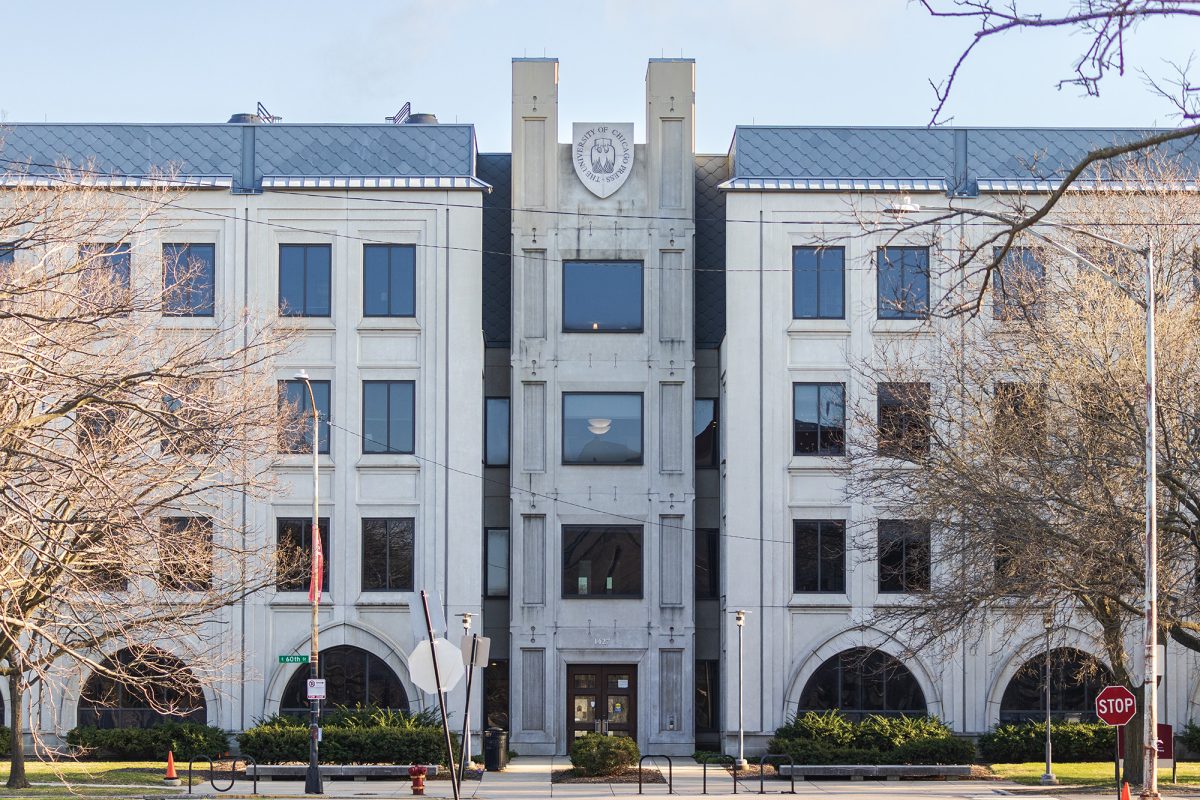The Pearson Institute for the Study and Resolution of Global Conflicts and the Martin Marty Center for the Public Understanding of Religion hosted a panel discussion titled “Humanitarian and Gendered Dimensions in Gaza” on January 30. Pearson Associate Maliha Chishti, Telos Group President Gregory Khalil, and Human Rights Watch’s Israel and Palestine Director Omar Shakir served as guest speakers for the event, which was moderated by Associate Dean of the College for Academic Affairs Dina Rashed.
Rashed began the panel with an overview of the conflict in Gaza. The civilian population, she said, is grappling with the repercussions of an electricity blockade and what she termed the “silent death”—a result of dire living conditions and the absence of operational facilities. She highlighted that not a single medical facility in the region is operating at full capacity.
Following Rashed’s introduction, each panelist delivered a 15-minute presentation on their respective domains of expertise, followed by an interactive Q and A session with students in the audience.
As the first panelist, Chishti delved into the repercussions of the prevailing culture of hypermasculinity in today’s global landscape, with a specific focus on its impact on Gaza. Chishti argued that this cultural phenomenon is a breeding ground for a perpetual war mindset directly at odds with the fundamentals of a potential peace—a notion she contends the United States is reluctant to embrace.
To illustrate her point, Chishti cited data on weapons transfers.
“The U.S. government, since October 7, transferred massive amounts of weapons to Israel [including] thousands of tons of weapons carried over in 244 cargo planes and 20 ships,” Chishti said. “Israel has received the highest amount of military assistance from the United States since World War Two.”
Gregory Khalil was the second panelist. His organization, The Telos Group, aims to “form communities of American peacemakers across lines of difference, and equip them to help reconcile seemingly intractable conflicts at home and abroad” according to the group’s website. In his speech, Khalil spoke about the interaction between institutions and culture.
“Structurally violent are the laws and institutions which conspire to control entire groups of people,” Khalil said. “There’s also cultural violence, the attitudes that flow through art and our societies, such as that women are unequal, that you can kill all the Jews, you can do all sorts of horrible things. And it’s this flow from cultural violence to structural violence that enables structures to exist that ultimately result in the kind of extreme, direct violence that we’re witnessing in Gaza today.”
Reflecting on his past visit to Gaza, Khalil expressed that he believes the voices of the Palestinian population are underrepresented in international discourse.
“Palestinians have been denied not just a story, but political rights from the very beginning,” he said.
Khalil firmly advocated for a shift towards prioritizing human rights as the central focus to resolve the current conflict in Gaza, arguing that neglecting political and human rights in any one country would have far-reaching consequences in neighboring countries.
“When our neighbors are suffering, their problems become our problems,” he said.
Building upon Khalil’s insights, the third speaker Omar Shakir addressed the legal dimensions of the conflict in Gaza, challenging the view that Israel’s occupation of Gaza ended in 2005.
“Human Rights Watch, Amnesty International, and Palestinian and Israeli human rights groups have found that Israel’s treatment of repression amounts to the crimes against humanity of apartheid and persecution,” Shakir said.
In addition, Shakir examined the events of October 7. While he expressed that there was “no justification” for Hamas’s actions, he emphasized what he characterized as “ongoing war crimes” committed by Israel in the conflict. He highlighted the lack of engagement from international law courts, calling attention to the broader implications of accountability and justice in the region.
“Moving forward, if we want to avoid… repetition of this level of violence, there will need to be accountability. There will need to be an addressing of the root causes, including Israel’s apartheid against Palestinians,” Shakir said.










Oh come on / Feb 12, 2024 at 10:48 am
This was not “illumination of perspectives”, but more one-sided antisemitic drivel. There’s a wide gulf between constructive criticism of Israel, of which I have plenty, mainly against the continued IDF presence in the West Bank; and indiscriminate Israel-bashing while refusing to acknowledge the existence of a genocidal Islamist death cult on its borders that has demonstrated its ability to carry out mass rape and murder.